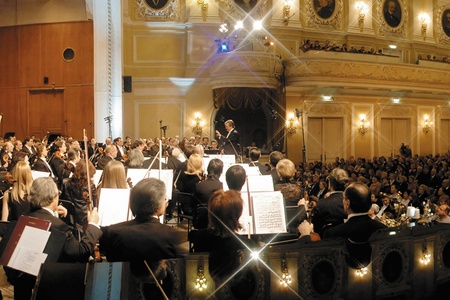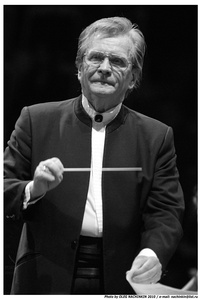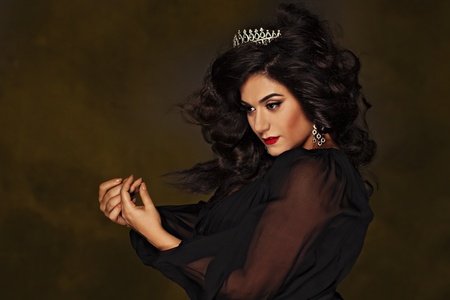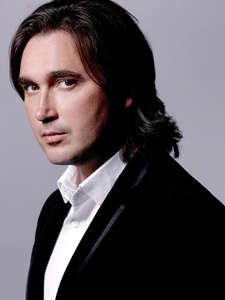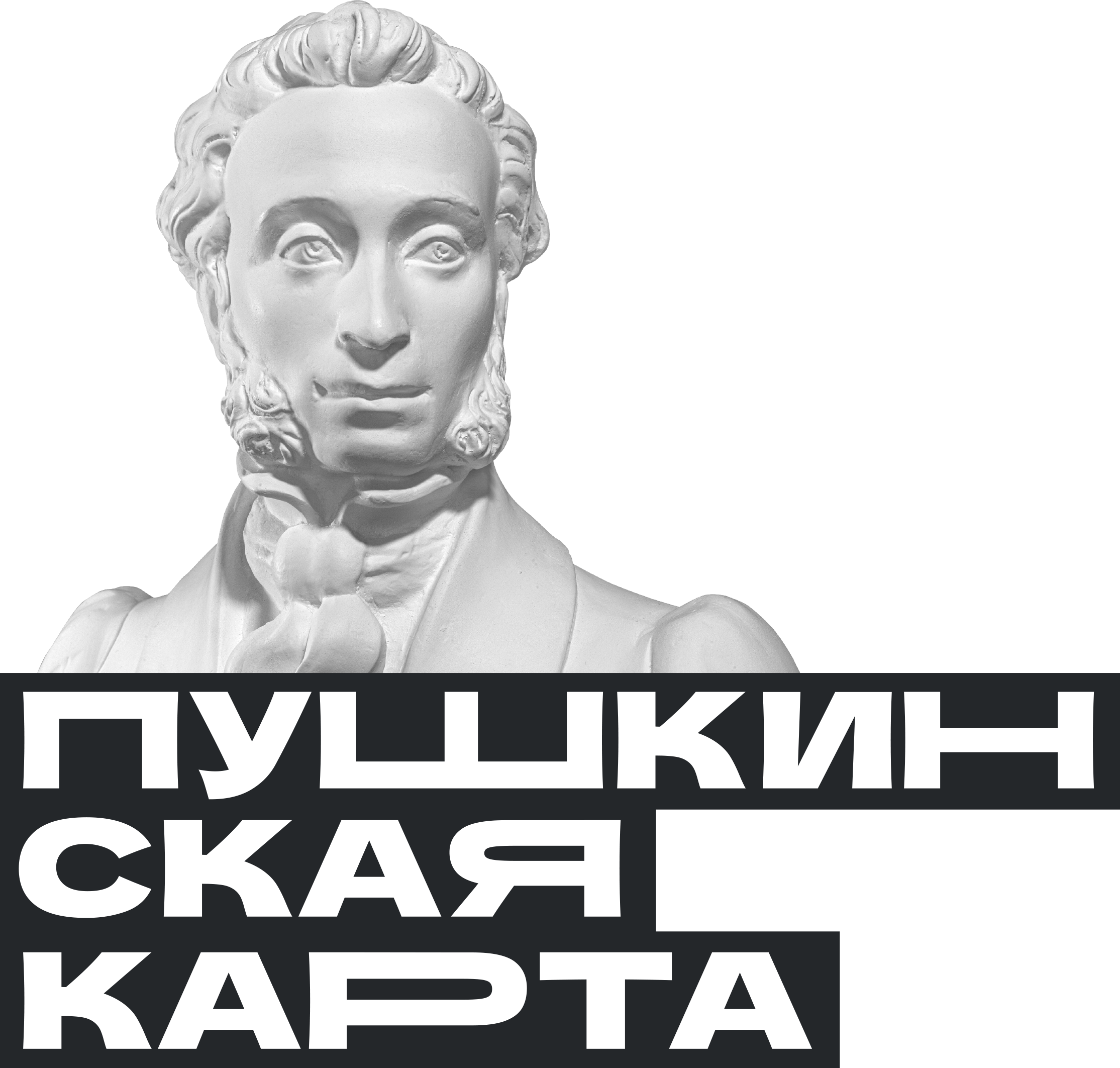A collection of passages
from Undine (1837) by Vasily Zhukovsky
narrated by Mikhail Filippov
November 13, 2015
Tchaikovsky Concert Hall
directions to the hallTchaikovsky Symphony Orchestra
Choir of the Popov Choir Arts Academy
Vladimir Fedoseyev, conductor
Anna Aglatova (soprano)
Alexey Tatarintsev (tenor)
Program:
Tchaikovsky
Opera "Undina"
"Swan Lake" — Suite form the ballet music (redaction by V.Fedoseyev)

Subscription №8:
Tchaikovsky State Symphony Orchestra
Tchaikovsky Symphony Orchestra
The Moscow Radio Symphony Orchestra was founded in 1930. Until the dissolution of the Soviet Union, the Orchestra was the official orchestra of the Soviet Radio Network. Alexander Orlov became the Orchestra’s first director in 1930 and is credited with developing a diverse and voluminous repertoire. From 1937 to the present, a series of outstanding directors have contributed to the Orchestra’s distinctive artistic style and personality: Nikolay Golovanov (1937–1953), Alexander Gauk (1953–1961), Gennady Rozhdestvensky (1961–1974). In 1974, Vladimir Fedoseyev assumed leadership, and turned the Orchestra into one of Russia’s most widely acclaimed ensembles.
Over the years, a distinguished group of composers, guest conductors and soloists have played an integral role in the development of the Moscow Radio Symphony Orchestra: Stokowski, Mravinsky, Cluytens, Sebastian, Abendrot, Feitelberg, Zecchi and Sanderling are among the artists who have led the ensemble. Emil Gilels, Yury Bashmet, Victor Tretyakov, Gidon Kremer, Misha Maisky, Oleg Maisenberg, Lisa Leonskaja and more contemporary musicians (among them Maxim Vengerov, Vadim Repin, and Mikhail Pletnev) have supported the Orchestra from the very beginning of their career as musicians. In 1993, the Orchestra was renamed by the decree of the Russian Ministry of Culture and became Tchaikovsky Symphony Orchestra of Moscow Radio. Awarding the Orchestra the name of this great Russian composer was recognition of its role in promoting much of the music written by Tchaikovsky.
The Tchaikovsky Symphony Orchestra traditionally participates in the legendary international Tchaikovsky Competition and also in the musical evenings which take place in the Tchaikovsky museums in Klin and Votkinsk. The Orchestra has given premieres of the new works of such prominent composers as Shostakovich, Khachaturian, Myaskovsky, Prokofiev, Gliere, Sviridov, Boris Tchaikovsky and Gubaidulina. It has also premiered works of the best composers from the former Soviet Union such as Taktakishvili, Toradze, Oganesyan, Melikov, Barkauskas, Tormis and many more. Engagements abroad have included appearances in London, Tokyo, Paris, Milan, Munich, Frankfurt, Geneva, Stockholm, Rome, Oslo, Prague and many other major cities. The Tchaikovsky Symphony Orchestra is the only Russian orchestra consistently invited to open the concert season in the prestigious Golden Hall of the Musikverein in Vienna.
The Tchaikovsky Symphony Orchestra is a frequent participant in numerous festivals; Beethoven Festival in Bonn, Bruckner Festival in Linz, Mozart Festival in Salzburg, Menuhin Festival in Gstaad, Klang Bogen in Vienna, Rachmaninov Festivals in Los Angeles, Carinthian Summer in Villach, Millennium in Athens, Scriabin Festival in Graz, Festival of Modern Music in Paris, Festival of Prokofiev, Russian Modern Music in Germany, Jeunesse Festivals in Vienna, Grieg Festival in Bergen as well as festivals in Hong Kong, Rome, Bregenz, Baden-Baden, Zurich and Edinburgh. In 1990, the Tchaikovsky Symphony Orchestra was the first Russian orchestra to perform at the Salzburg Festival in honour of the Festival’s 70th anniversary.
For more than 40 years, Vladimir Fedoseyev has led the Tchaikovsky Symphony Orchestra in the tradition of his predecessors. His interpretations are famous for their depth, artistic passion and great sensitivity for the national character of Russian music. Maestro Fedoseyev has created in the Orchestra a specific melodious emotional style that distinguishes it from others and has helped it to earn worldwide acclaim. Vladimir Fedoseyev and the Tchaikovsky Symphony Orchestra have recorded extensively for a variety of labels including Ariola, JVC, Musica, Philips, Pony Canyon, Relief Records and Sony Classical.
Choir of the Popov Choir Arts Academy
Thе first in thе history high sсhool of сhoral art, сallеd Thе Aсadеmy of Choral Art (thе earliеr Svеshnikov Mosсow Choral Collеgе), was establishеd in 1991 on initiativе of thе profеssor Viсtor Popov. Thе main сonсеrn of the Aсadеmy is to kеep on and dеvеlop historiсal tradition of Russian art of singing, whiсh originated in orthodox сivilization, soon аftет Сhristianization of Russia in 988. Thе first attеmpt to restore traditional system of singеrs' еduсation and training was madе by famous сhoral сonduсtor Alеxandеr Svеshnikov who еstablishеd thе new institution undеr thе namе Mosсow Choral Collеgе in1944. Hе rесruitеd thеrе boys with a good singing voiсе and good еar for musiс. Now this institution bеars Sveshnikov's namе. Thе final point in this historiсal run was thе Aсadеmy of Сhoral Аrt еstablished Ьy professor Popov. Thе Aсademy now сomprisеs all gradеs of сomprеhеnsivе еduсation of сhoirboys–thе bаsiс (primary and sесondary sсhool) ryсle is 11 yеars long, thе high еduсation сyсlе is 5 yеars. Additionally, girls are also admittеd to thе high sсhool. Aсadеmy сhoirs givе pеrformanсеs in Russia and abroad, in Еuropе, Asia (Japan, Taiwan), in thе USA and in Canada. Thе forеign tours Ьесamе more frequеnt sinсе 1995. Choirs took part in a row of intеrnationаl musiс fеstivals likе Bregenzеr Fеstspiеlе (Austriа, 1995, 1996) Fеstival dе Сolmar (Franсе, 1998, 1999, 2001, 2004), Rhеingau Мusikfеst (Germany, sinсе 1994 year) and, of сoursе, in Mosсow festivals (Mosсow Autumn, Mosсow Еastеr Fеstival, Chеrry Forest, Mozartiana).Thе Aсadеmy сhoir took part at thе most important сultural еvеnts of rесent yеars suсh as thе world prеmiеrе of Еdison Dеnisov's , “History of lifе and dеath of our Saviour Jesus Christ” (Alte Opеr, Frankfurt, 1994, сond. A.Kats), Pеndеrесki’s “Laudso f St.Daniel, thе Prinсе of Mosсow” (Mosсow, 1997), as wеll as numеrous performanсеs at homе and abroad of Raсhmaninov’s “All- Night Vigil” (“Vsenoshсhnaya”), Mahlеr’s Third and Еighth symphonies, Mozart’s “Requiеm” and “Coronation” Mass, Vеrdi’s “Rеquiem”, Brahms’ “Gеrman Requiеm”, Bеrnstеin’s “Сhiсhеster Psalms”, “Symphony of Psalms” by Strаvinsky and “Rеquiеm” by Lokshin. Aсadеmy сhoirs gavе сonсеrts undеr thе dirесtion of famous сonduсtors suсh as Еvgeny Svetlanov, Vladimir Spivakov, Gennаdy Rozhdestvensky, Dmitri Кitaуеnko, Jansugh Kakhidzе, Vladimir Fеdoseyev Hеlmuth Rilling, Rudolf Barshai, Thomas Sandеrling, Alexandеr Rudin, Mikhail Plеtnеv, Yury Temirkanov. Academy choirs have fully prepared for performance over 2000 music compositions and recorded 40 CDs. Former graduates of Academy and College now hold top-ranked positions in world music life.
Today the team of Academy of choral art is the group of adherents, colleagues and continuers of work of Victor Sergeevicha Popov. The grand student's choir of Academy directs the pupil V.S.Popov – young, but already enough skilled chorus master Alexey Petrov – the winner of the First award of the First Moscow competition of choral conductors.
Vladimir Fedoseyev
Conductor Vladimir Fedoseyev was born in Leningrad on August 5, 1932. He received his musical education at the State Gnessins Music Teachers Institute (now the Russian Gnessins Music Academy) and attended a graduate course at the Moscow Tchaikovsky Conservatory with Professor Leo Ginsburg. He started his conducting career in the Leningrad Philharmonic Orchestra after he was invited by Evgeny Mravinsky. Vladimir Fedoseyev’s theatrical conducting debut also took place in Leningrad, at the State Kirov (Mariinsky) Academic Opera and Ballet Theatre where he staged The Tsar’s Bride by Rimsky-Korsakov. In the 1980s and 1990s, Vladimir Fedoseyev presented concert versions of Tchaikovsky’s Eugene Onegin, Rimsky-Korsakov’s The Snow Maiden and Rachmaninoff’s Aleko at the Salle Pleyel in Paris. He conducted Verdi’s Requiem performed by the World Festival Choir and the outstanding soloists Carol Vaness, Florence Ouivar, Luciano Pavarotti and Roberto Scanduizzi in Oslo, Stockholm and Munich.
In the same period of time, the conductor was involved in opera and ballet productions at some of Europe’s best venues, including Rimsky-Korsakov’s The Tale of Tsar Saltan (1988) and Tchaikovsky’s The Queen of Spades and The Sleeping Beauty (1989) at the Teatro alla Scala in Milan, Bizet’s Carmen (1993), Mussorgsky’s Boris Godunov (1994) and Bartok’s The Miraculous Mandarin (1995) at the Vienna State Opera, Glinka’s A Life for the Tsar (1996), Rubinstein’s The Demon and Verdi’s Attila (1998) at the Opernhaus in Zurich. Today, Fedoseyev continues to collaborate with the best theatres. So, in 2015 and 2016, he conducted the new La Scala productions of Tchaikovsky’s The Nutcracker (choreographed by Nacho Duato) and The Sleeping Beauty (choreographed by Alexei Ratmansky). In January 2017, he conducted the premiere nights of Puccini’s Turandot at the Helicon-Opera in Moscow and then was invited to be the theatre’s musical director.
The name of Vladimir Fedoseyev is associated with many orchestras across the world. He was the first guest conductor of the Tokyo Philharmonic Orchestra since 2000, a guest conductor of the Bavarian Radio Symphony Orchestra of Munich, the Radio France Philharmonic Orchestra of Paris, the Finnish Radio Symphony Orchestra, the Berlin Symphony Orchestra, the Dresden Philharmonic Orchestra, the orchestras of Stuttgart, Essen, Cleveland and Pittsburg. Between 1997 and 2006, Vladimir Fedoseyev was the chief conductor of the Vienna Symphony Orchestra, and that decade was marked with the orchestra’s triumphal tours in the countries of Central Europe, Japan, China and the Philippines, as well as the cycle “Beethoven’s Complete Symphonic Works” which was concluded on the 1st of January 2000 with the performance of the Missa solemnis.
No matter how diverse the conductor’s artistic activities are, the Tchaikovsky Symphony Orchestra holds the central place in the life of Vladimir Fedoseyev who has been its artistic director and chief conductor for more than four decades. During these years the conductor formed a special, recognizable style that brought TSO international fame, performed numerous premieres of contemporary composers’ works constantly extending artistic contacts with Russian and foreign composers, as he did in the beginning of his career with Shostakovich and Sviridov and later on with Krzysztof Penderecki (Poland), Ragnar Soderlind (Norway), Vladimir Rubin and Roman Ledenyov (Russia). Among the first large-scale projects of the conductor and TSO were concert productions and performances of the operas Cavalleria rusticana by Mascagni, Cherevichki by Tchaikovsky, and The Snow Maiden and May Night by Rimsky-Korsakov realized for the radio and sound recording.
Many of Vladimir Fedoseyev’s recordings, including all symphonies by Beethoven, symphonies by Tchaikovsky, Mahler and Taneyev, were bestsellers. The conductor’s discography also features all symphonies by Brahms released by Warner Classics & Jazz, and symphonies by Shostakovich published by Pony Canyon in Japan. Vladimir Fedoseyev is an owner of numerous prizes and awards, including the Silver Award from Japan’s Asahi Broadcasting Corporation (for the programmes with works by Tchaikovsky and Shostakovich), the order “For Services to the Fatherland” of all four degrees, the Order of St Vladimir, the Order of the Venerable Sergius of Radonezh of the First Degree, the Silver Cross of Merit of the Republic of Austria, the Order of the Cross of Honour of the First Degree for services to the Republic of Austria Culture, and the Gold Medal of the International Gustav Mahler Society.
In March 2013, in Prague, the conductor received the Trebbia European Award for creative activities. In 2016, the conductor became an owner of the honorable title “Honoured Music Art Worker” and the prize of the Union State in the field of literature and arts. In 2017, the Mayor of Moscow, Sergei Sobyanin, awarded the maestro with the mark of distinction “For Services to Moscow” for his outstanding contribution to the development of Russian culture and music. In January 2018, Patriarch Kirill of Moscow and All Russia presented to Vladimir Fedoseyev the order of Daniel of Moscow first degree.
Anna Aglatova
Anna Aglatova born in 1982. She completed her studies at the department of academic singing at the Gnesin Music College (R.Lisitsian’s class) in 2004,after which she enrolled at the Gnesin Russian Music Academy’s faculty of singing.In 2001,she received a Sergei Leiferkus grant from the Vladimir Spivakov Fund.In 2003,she won 1st prize at the “Bella voce” International Competition for singers.In 2003 ,she was invited to take part in the Cristmas Festival in Dusseldorf.In 2005,she made her Bolshoi Theatre debut as Nannetta (“Falstaff” G.Verdi).
May, 2005 – went on tour with the group of the invited soloists of the Bolshoi Theatre around cities of South Korea.In 2005 has acted as Pamina and Papagena ("Die Zauberflote" W.-A.Mozart) on stage of the Bolshoi Theatre. In November 2005 she won 3 rd prize at the“Neuen Stimmen” International Competition for vocalist’s(Germany). In 2006 has acted as Susanna ( “Le nozze di Figaro” W.-A.Mozart) on stage of the Theatre of Novosibirsk(Russia). 2007 she sang Xenia (“Boris Godunov” M.Mussorgsky ), Prilepa (“The queen of spades” P.Tchaikovsky) and Liu (“Turandot” G.Puccini) on stage of the Bolshoi Theatre.
Worked with prestigious conductors, such as: Alexander Vedernikov (Russia), Stuart Badfort (UK), Thomas Zanderling (Germany), Alessandro Pagliazzi (Italy), Teodor Kurendzis (Greece), Mikhail Pletnyov (Russia), Alexander Rudin (Russia).

